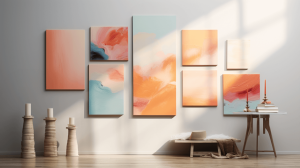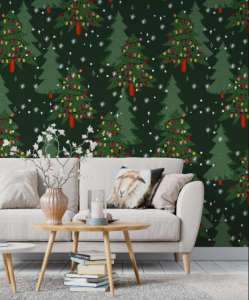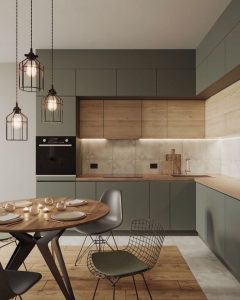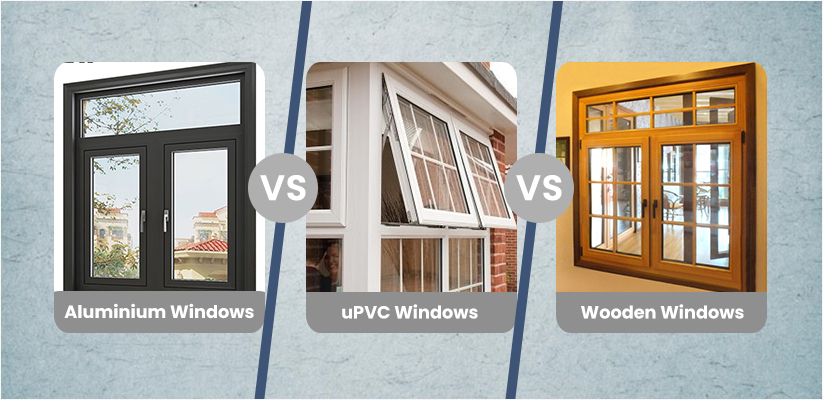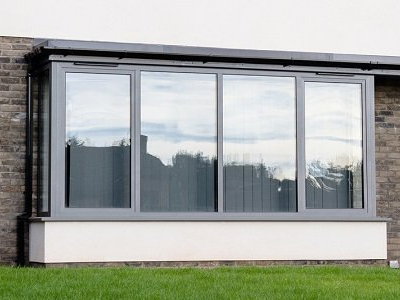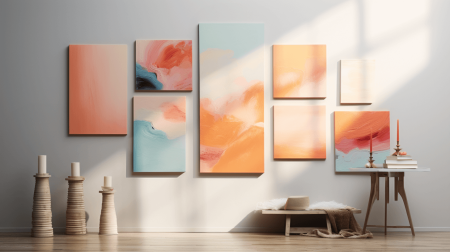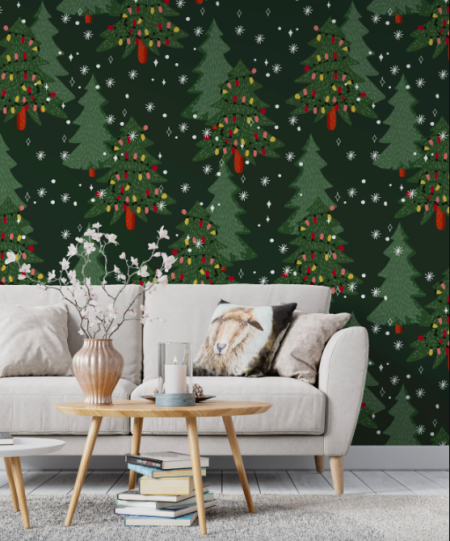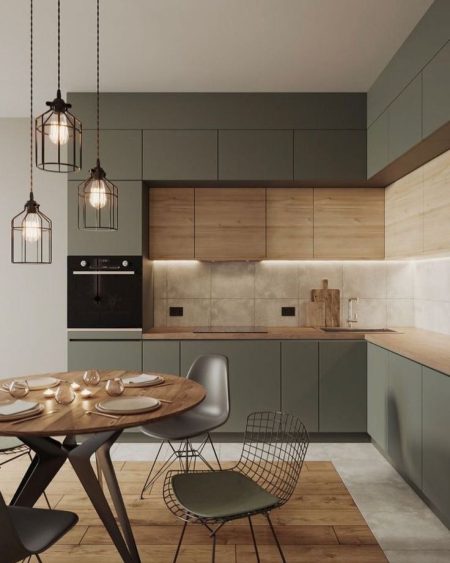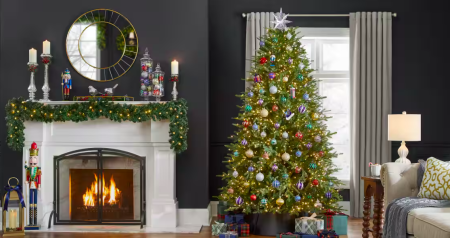Windows play a crucial role in the aesthetic appeal and functionality of your home or office. They enhance the overall decor but also act as a protective barrier against the forces of nature. Choosing the right window is essential, as it can add value to your property and contribute to energy efficiency. With a variety of options available, it’s crucial to focus on the framing material, which is just as important as selecting the appropriate glass. Typically, windows are constructed using uPVC, wood, or aluminium. Each material has its own advantages and disadvantages, and the ultimate choice depends on your specific needs and preferences. Let’s explore these three options in detail, shedding light on their unique characteristics and helping you make an informed decision.
Related: Top 10 UPVC Window Designs and Styles
uPVC Windows:
Made from unplasticized polyvinyl chloride, uPVC windows have gained immense popularity in recent years. One of the advantages of uPVC openings is their exceptional energy efficiency. These windows provide excellent insulation, keeping your home warm in winter and cool in summer, reducing energy costs. These windows are highly durable and resistant to rotting, warping, and fading, making them low maintenance and long-lasting. Additionally, they are available in a wide range of styles, colors, and designs, allowing you to find the perfect fit for your home’s aesthetic. uPVC openings offer a superior surface finish, making them a perfect match for contemporary and modern interiors. In terms of affordability, uPVC is a cost-effective option compared to aluminium or wood.
Pros of uPVC Windows:
-
Excellent energy efficiency:
These windows provide exceptional insulation, reducing heat loss and saving on energy costs.
uPVC is a highly durable material resistant to rotting, warping, and fading, ensuring long-lasting performance.
These windows require minimal maintenance, as they do not require painting or sealing like wooden ones.
These windows are generally more affordable than aluminium or wooden ones, making them a budget-friendly choice.
-
Variety of styles and designs:
These windows are available in a wide range of styles and colours, allowing for customization to suit any architectural preference.
Cons of uPVC Windows:
-
Limited aesthetic appeal:
While these windows offer versatility in terms of design, some may find them lacking the natural and traditional charm of wooden openings.
uPVC is not easily recyclable, which can have an environmental impact.
-
Potential for expansion and contraction:
In extreme temperature variations, these windows may expand or contract, affecting their performance.
Unlike wooden windows, uPVC ones have limited color choices as they cannot be repainted.
-
Vulnerable to scratching:
These windows may be susceptible to scratching and can be difficult to repair compared to other materials.
Aluminium Windows:
Aluminium windows have a sleek and modern appearance, making them a popular choice for contemporary architectural designs. One of the benefits of these windows is their strength and durability. They are lightweight yet highly robust, making them suitable for large window openings. These windows are resistant to corrosion, ensuring longevity and minimal maintenance requirements. Moreover, aluminium window design offers excellent security features, with advanced locking mechanisms for enhanced safety. Their slim profiles allow for larger glass areas, maximizing natural light and providing unobstructed views.
Pros of Aluminium Windows:
These windows are known for their strength and durability, making them highly resistant to weather conditions and providing long-lasting performance.
-
Sleek and modern appearance:
These windows offer a sleek and modern aesthetic, complementing contemporary architectural styles.
Aluminium is lightweight, allowing for larger glass areas and maximizing natural light. The slim profiles create a visually appealing look with unobstructed views.
These windows require minimal maintenance as they corrosion resistant, reducing the need for regular upkeep.
-
Enhanced security features:
These windows can be fitted with advanced locking systems, providing improved security for your home or office.
Cons of Aluminium Windows:
Compared to other materials, aluminium is not as effective in providing insulation. They can result in heat loss or gain, impacting energy efficiency.
These windows are more expensive than uPVC ones.
While aluminium windows can be powder-coated in various colors, the choices are limited compared to uPVC or wooden openings.
These windows may experience condensation in high humidity conditions, leading to moisture-related issues.
Aluminium is a good conductor of heat and cold, which can impact the overall thermal efficiency of these windows.
uPVC Wooden Windows:
These windows exude a timeless and natural charm, adding warmth and character to any home. One of the significant advantages of these windows is their aesthetic appeal. They offer a classic and traditional look that complements various architectural styles. These windows are excellent insulators, providing natural thermal efficiency and reducing energy consumption. While they require regular maintenance to prevent rot and warping, they can be repaired and refinished, ensuring longevity. These windows can be customized to match your preferences, allowing for a unique and personalized touch to your home’s design.
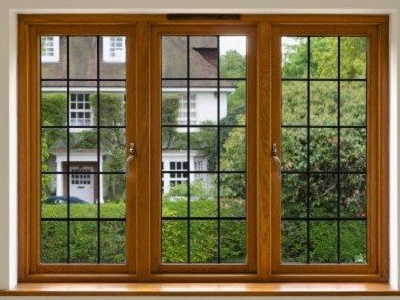
Enquire Now for Wooden Windows
Pros of Wooden uPVC Windows
-
Natural and timeless charm:
These windows offer a classic and warm aesthetic, adding a touch of natural beauty to any home or building.
Wood is a natural insulator, providing superior thermal efficiency and helping to reduce energy consumption.
-
Customizable and versatile:
These windows can be easily customized to fit specific architectural styles and design preferences, offering a wide range of options for personalization.
-
Repairable and renewable:
These windows can be repaired if damaged, extending their lifespan. Wood is also a renewable resource, making it an environmentally friendly choice.
Wood has natural sound-dampening properties, helping to reduce noise transmission from the outside.
Cons of uPVC Wooden Windows
-
Higher maintenance requirements:
These windows require regular maintenance to protect them from rot, warping, and weathering.
-
Vulnerability to moisture and pests:
Wood is susceptible to moisture damage and can be a target for pests, requiring diligent upkeep and preventive measures.
These windows tend to have a higher initial cost than uPVC or aluminium ones, making them a pricier option.
-
Limited resistance to extreme weather conditions:
Wood may be more susceptible to damage in extreme weather conditions, such as prolonged exposure to direct sunlight or heavy rain.
These windows may have fewer color options than uPVC or aluminium, requiring additional treatments for desired colors.
Conclusion
Choosing the right windows for your home is a crucial decision that impacts aesthetics and functionality. uPVC window design offers energy efficiency, durability, and versatility. Aluminium openings provide a modern look, strength, and security. Wooden window design brings a timeless charm and natural insulation to your living spaces. Ultimately, the choice between uPVC, aluminium, and wooden openings depends on your preferences, budget, and the overall style you desire for your home. Consider the advantages and characteristics of each building materials, and make an informed decision that suits your needs, enhancing the beauty and comfort of your living space.
Read the full article here
